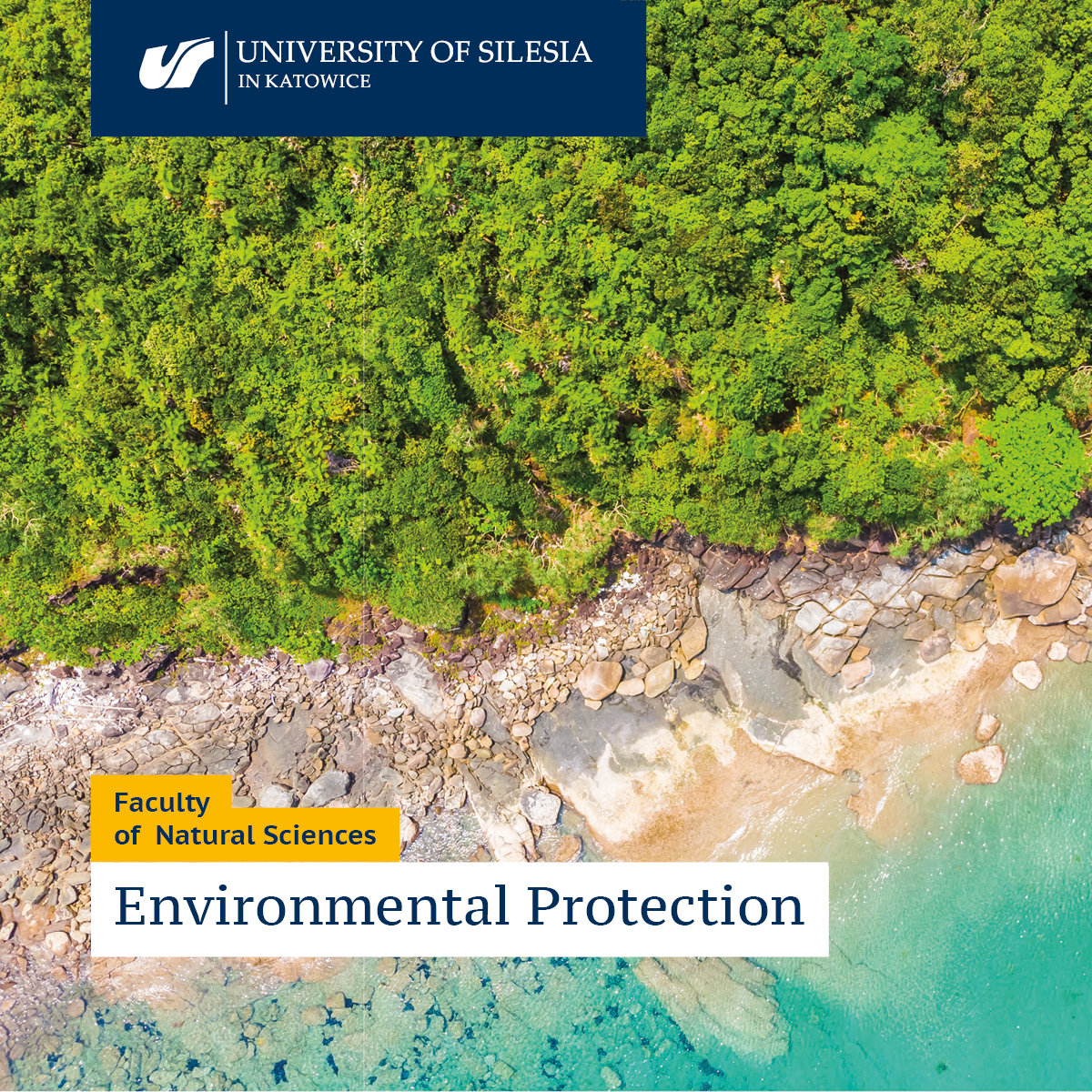The aim of the 1st cycle (Bachelor’s degree) in Environmental Protection is to prepare graduates to use their broad knowledge in biology, chemistry, physics, geography, and basic technological knowledge in their professional work and public life, as well as independently deepen their knowledge, present their knowledge in public, and apply it in professional activity. During the first two years of the studies, students attend classes for all in the degree programme. These are lectures and practicals in biology, chemistry, physics, geography, and geology that enable them to acquire competencies indispensable for the further course of studies. The programme gives particular attention to the practical preparation of graduates, e.g. thanks to the programme’s internships. In the third year of studies, students select research problems and prepare their BA thesis with the help of their supervisor. Bachelor’s degree studies are the first stage of acquiring qualifications to work in branches of environmental protection, functioning industrial facilities, environmental analysis laboratories, nature maintenance, state administration units and related to them economic sectors and fields of science.
2nd cycle studies (Master’s degree) take place within a major selected by students. The diploma thesis is research-based and tightly connected with the selected major and scientific interests. The diploma thesis is written as part of specialist (1st year) and Master’s (2nd year) laboratories carried out in modern laboratories equipped with a specialist scientific and research apparatus as well as fieldwork. Apart from that, specialist (1st year) and Master’s (2nd year) seminars provide theoretical background useful for writing your Master’s degree thesis. The studies are to teach students how to plan research experiments as well as prepare them to prepare, present and discuss their Master’s thesis. While being supervised, students are taught how to pose and solve questions regarding environmental protection and scientific contribution. The acquired qualifications are the base to occupy mid-level management positions, consulting and project companies, government offices, non-governmental organisations and scientific institutions. Graduates of the degree programme in Environmental Protection are experts combining specialist knowledge with an extensive insight of the issues of, e.g. waste management, environmental impact assessment, spatial planning, or raising funds for environmental protection.
During the studies in Environmental Protection, students acquire knowledge in disciplines of value regarding environmental protection, in particular: sciences describing biodiversity of the living world, the basics of botany and zoology, microbiology, biochemistry, the basics of genetics, chemistry, ecology, hydrobiology, physics, geology, geomorphology, soil science, computer science, climatology and meteorology, environmental protection, sozology, animal and plant physiology, ecology, environmental protection technology, remediation technology, chemical analytics, law, economy, and safety regulations. Apart from courses that constitute the core of education, numerous elective courses are offered. A crucial element of the studies lies in making use of laboratories, databases, audio-visual means, computer programmes and other tools that are the base of work in environmental protection and are helpful in further self-education and social communication. Students also acquire professional experience thanks to an internship completed in workplaces, science institutes and state administration offices.
The curriculum is in line with the Polish Qualifications Framework and is implemented in the ECTS credits system, thanks to which students may take part in international exchange programmes, study abroad, and in turn being qualified for the European labour market. Those particularly gifted are allowed to study in the Individual Study Programme under the supervision of a tutor designated by a dean.
2nd cycle studies (Master’s degree) take place within a major selected by students. The diploma thesis is research-based and tightly connected with the selected major and scientific interests. The diploma thesis is written as part of specialist (1st year) and Master’s (2nd year) laboratories carried out in modern laboratories equipped with a specialist scientific and research apparatus as well as fieldwork. Apart from that, specialist (1st year) and Master’s (2nd year) seminars provide theoretical background useful for writing your Master’s degree thesis. The studies are to teach students how to plan research experiments as well as prepare them to prepare, present and discuss their Master’s thesis. While being supervised, students are taught how to pose and solve questions regarding environmental protection and scientific contribution. The acquired qualifications are the base to occupy mid-level management positions, consulting and project companies, government offices, non-governmental organisations and scientific institutions. Graduates of the degree programme in Environmental Protection are experts combining specialist knowledge with an extensive insight of the issues of, e.g. waste management, environmental impact assessment, spatial planning, or raising funds for environmental protection.
During the studies in Environmental Protection, students acquire knowledge in disciplines of value regarding environmental protection, in particular: sciences describing biodiversity of the living world, the basics of botany and zoology, microbiology, biochemistry, the basics of genetics, chemistry, ecology, hydrobiology, physics, geology, geomorphology, soil science, computer science, climatology and meteorology, environmental protection, sozology, animal and plant physiology, ecology, environmental protection technology, remediation technology, chemical analytics, law, economy, and safety regulations. Apart from courses that constitute the core of education, numerous elective courses are offered. A crucial element of the studies lies in making use of laboratories, databases, audio-visual means, computer programmes and other tools that are the base of work in environmental protection and are helpful in further self-education and social communication. Students also acquire professional experience thanks to an internship completed in workplaces, science institutes and state administration offices.
The curriculum is in line with the Polish Qualifications Framework and is implemented in the ECTS credits system, thanks to which students may take part in international exchange programmes, study abroad, and in turn being qualified for the European labour market. Those particularly gifted are allowed to study in the Individual Study Programme under the supervision of a tutor designated by a dean.






